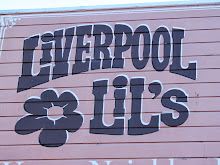Facebook today announced that they've extended a new application, the Gross National Happiness app, to users in countries around the world. This "app", which I had never heard about until this article, identifies status updates of users and uses the information to classify the "emotional state of users" by country. Apparently in the trials in the US and a few other countries, it was found that Gross National Happiness increases when people are enjoying holidays, but decreases when we're all sad over celebrity deaths, like Michael Jackson or when our favorite team loses the Super Bowl. This Facebook, or Fizzle Bizzle (as my friends and I like to call it) article made me think more about Facebook and its purpose.
Facebook to me, has gone from a seemingly organic way to connect with friends and acquaintances, to a way for companies and corporations to collect data on potential customers. Ever wonder where that fun quiz about your likes and dislikes came from? No, not some creative college student's basement. Try a market research company. It's much easier to collect data from consumers when you don't have to survey them in a grocery store or by cold calling. I'm often surprised the detail of information people will provide online surveys that seem to have no creator and are floating freely around Facebook. People will answer questions about their living arrangement (alone or with people), their income, education level, work place, hours of work, pets, names of family members, favorite foods, music, movies, books, etc, all because some quiz is supposedly going to provide insight into their personality as a result of their painstaking answer to the question, "Do you prefer Cheetos or Doritos?"
Cheetos.
And now Facebook is publicly going beyond the quiz for market research. It is mining our comments to determine our emotional well being. (How does FB get around obtaining Informed Consent from users?). Interestingly, I foresee targeted advertisements to citizens of certain countries based on the average emotional state of its users. This is where I think the process is flawed (and I'm kind of happy about it). If Facebook is going to use a text reader to look for words indicating emotional state, such as "awesome" or "tragic", how will it take sarcasm into consideration? What if my status is, "It is so awesome that my cat took a shit on my jeans!" (That is pretty much a real status update from my friend B.A.) Or, even more fascinating is the fact that sometimes people write status updates that are more a reflection of what they think other people want to see, and less about what they are feeling. People write, "Happy Thanksgiving! It's going to be a great day with family!" when they really mean "I don't feel like cooking for these ingrates." How does this app taking lying into consideration? Or people just reflect on things that they don't care about, or don't really mean anything. "Happy Friday!". Does that mean I'm having a Happy Friday or does that mean that I hope to have one or I hope other people have them? Or does it mean that I just can't think of anything to say?
How is the Fizzle Bizzle going to handle magic like that? I like to think they won't be able to since I am not a fan of this data collection, but something tells me that they are probably working on some program to identify sarcasm. This Facebook app is actually based on the research of a person at the University of Oregon (small world!) looking into Computer-Human interaction. And now I have a new mission for my lunch break - track down the author and ask him about sarcasm since his article does not mention it! See for yourself: http://portal.acm.org/citation.cfm?doid=1753326.1753369.
Friday, May 7, 2010
Subscribe to:
Post Comments (Atom)

From a market research standpoint (and my naive understanding of such a perspective), it seems there should be little difference between a sincere status update and one which is driven by some level of perceived peer acceptance. I believe sarcasm is probably another story...
ReplyDelete